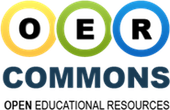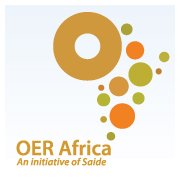



Open Educational Resources are teaching, learning, and research resources that reside in the public domain or have been released under an intellectual property licence that permits their free use and repurposing by others. OER include full courses, course materials, modules, textbooks, streaming videos, tests, software, and any other tools, materials, or techniques used to support access to knowledge. (Hewlett Foundation, OER Defined).
Source: https://www.oerafrica.org/understanding-oer/definitions
Explore the Open Education Resources (OER), including lectures, activities and labs, readings and syllabi, available at the OER Commons and OER Africa
The links listed below are just a sample of what can be found at the OER Commons and on the OER Africa website. There are many more, so please look at the site...
CC BY-SA

Unlike some other textbooks, this one does not follow a top-down narrative. Rather it has the flow of a conversation, with backtracking. We will often build up programs incrementally, just as a pair of programmers would. We will include mistakes, not because I don’t know the answer, but because this is the best way for you to learn. Including mistakes makes it impossible for you to read passively: you must instead engage with the material, because you can never be sure of the veracity of what you’re reading.
Please find below an example of an Open Education Resource (OER) that contains searchable, peer reviewed online learning materials relating particularly to Information Systems: